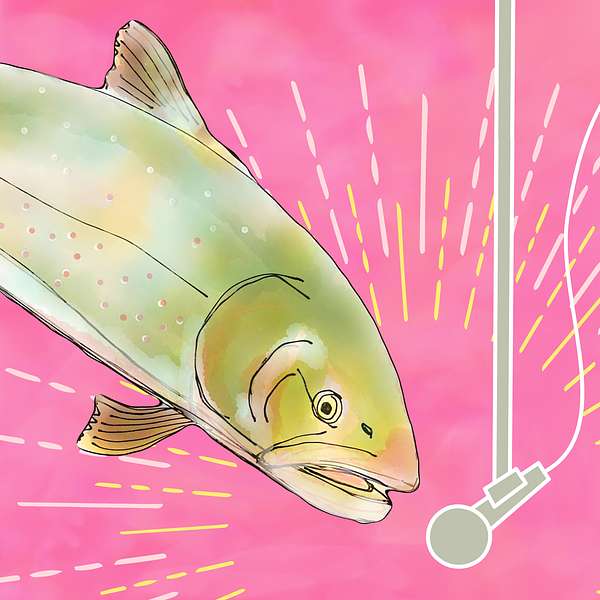
The Bull Trout Show
The bull trout, Salvelinus confluentus, is Alberta’s official fish. This native trout species, believed to have inhabited the waterways of present-day Alberta since the last Ice Age, once populated streams and rivers from the Rocky Mountain headwaters well onto the prairies. European settlement starting in the 1800’s changed that, with settlers deeming the bull trout a ‘garbage fish’ that ought to be extirpated in favour of other trout. In the 1960’s and 1970’s, naturalists and fishers in Alberta documented the decline of the species, and in the early 1980’s, they initiated the first efforts to urge the provincial government to protect the species in Alberta. Despite nearly 40 years of local and national scientific advocacy to protect the species, where there were once thriving populations of bull trout, today there may be only a handful or even none in the waterways where they once thrived. In 2019, the Department of Fisheries and Oceans (now Fisheries and Oceans Canada) declared the bull trout a threatened species under the Species At Risk Act, acting on a recommendation from the Committee on the Status ofEndangered Wildlife in Canada (COSEWIC) issued in 2012. The Government of Canada subsequently issued a species recovery strategy for the Saskatchewan-Nelson River bull trout population in 2020, and in 2021 a species critical habitat order was issued.
The Bull Trout Show
01 - Bull Trout, Bighorn Country And Bounty Lost with Dr. Zoe Todd
You’ll find Bighorn Country along the eastern slopes of the Rocky Mountains in Alberta. Bull trout flourished in the rivers and streams of the Bighorn from the last ice age until the mid-twentieth century. That’s when bull trout succumbed to the impact of increased human access to the forested wildlands and the industrial and tourist development that followed. Recent mitigation and conservation efforts are focused on recovering bull trout and other native salmonid species. But there’s more to this fish story than biology and habitat restoration. There are the links to indigenous culture, human storytelling, and our connection to the land. These form the basis of a unique social science research project called “Plural perspectives on Bighorn Country: Restor(y)ing land use, governance, and bull trout population health in Alberta”. The project is supported by the Social Sciences and Humanities Research Council of Canada New Frontiers in Research Fund. To learn more about Restor(y)ing Bull Trout, journalist Cheryl Croucher spoke with co-investigator Dr. Zoe Todd, a Metis scholar, fish philosopher, and Associate Professor of Indigenous Studies at Simon Fraser University in British Columbia.